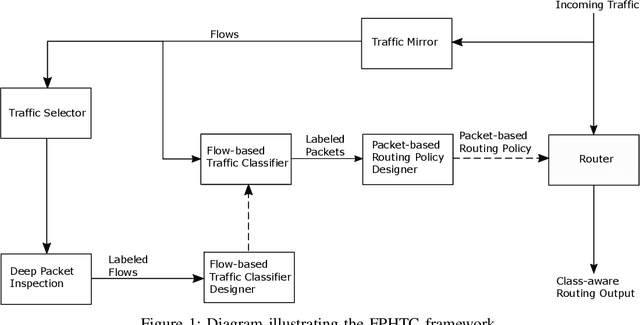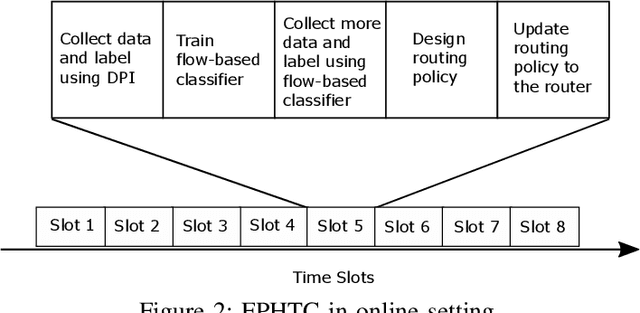Flow-Packet Hybrid Traffic Classification for Class-Aware Network Routing
Paper and Code
Apr 30, 2021



Network traffic classification using machine learning techniques has been widely studied. Most existing schemes classify entire traffic flows, but there are major limitations to their practicality. At a network router, the packets need to be processed with minimum delay, so the classifier cannot wait until the end of the flow to make a decision. Furthermore, a complicated machine learning algorithm can be too computationally expensive to implement inside the router. In this paper, we introduce flow-packet hybrid traffic classification (FPHTC), where the router makes a decision per packet based on a routing policy that is designed through transferring the learned knowledge from a flow-based classifier residing outside the router. We analyze the generalization bound of FPHTC and show its advantage over regular packet-based traffic classification. We present experimental results using a real-world traffic dataset to illustrate the classification performance of FPHTC. We show that it is robust toward traffic pattern changes and can be deployed with limited computational resource.
 Add to Chrome
Add to Chrome Add to Firefox
Add to Firefox Add to Edge
Add to Edge